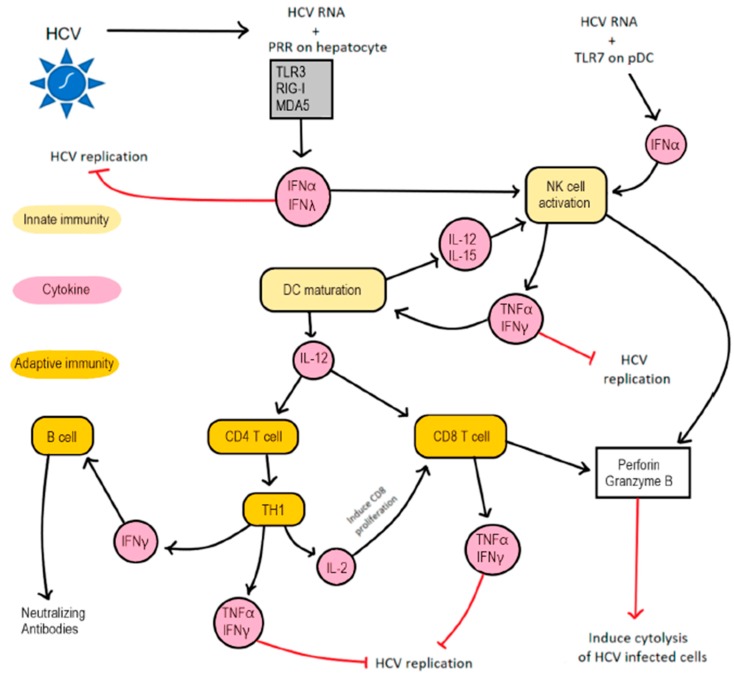Figure 2.
A host immune response to an HCV infection: The interaction between HCV and hepatocytes induces innate and adaptive immune responses. During an HCV infection of hepatocytes, HCV RNA engages TLR3, RIG-I, and MDA5 on infected hepatocytes as well as TLR7 on pDC to induce the secretion of type I and III interferons. Type I and III IFN inhibit HCV replication and activate NK cells. Activated NK cells produce IFN-γ and TNFα, which induce DC maturation and inhibit HCV replication. Matured DC produce IL-12 that induce the differentiation of CD4 T cells and CD8 T cells into Th1 cells and Cytotoxic T cells, respectively. Additionally, IL-12 and IL-15 secreted by DC activate NK cells. Th1 cells secrete IL-2, IFN-γ, and TNFα. IL-2 induce the proliferation of CD8 T cells, whereas IFN-γ and TNFα inhibit HCV replication without inducing a cytolysis of HCV-infected cells. Furthermore, IFN-γ produced by Th1 cell induce the differentiation of B cells into plasma cells that produce neutralizing antibodies. Finally, perforin and granzyme B produced by CTL and activated NK cells induce the cytolysis of HCV-infected cells.

